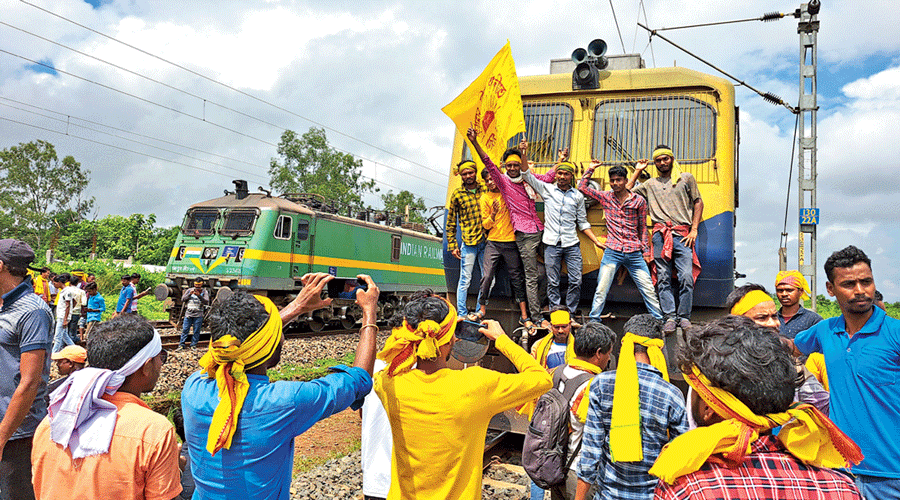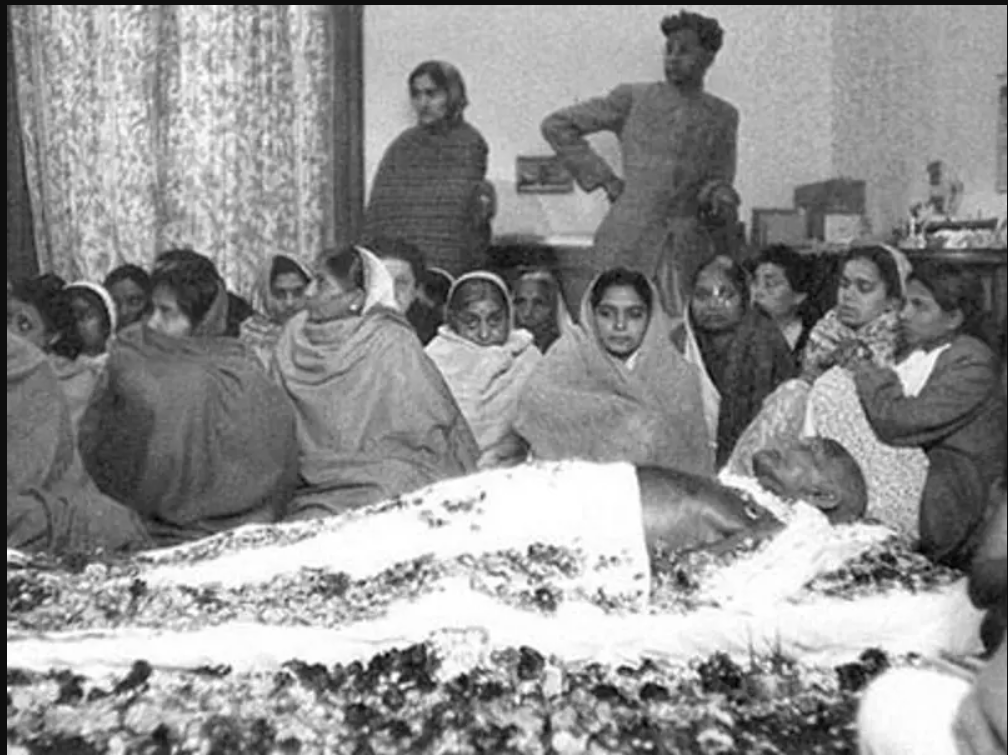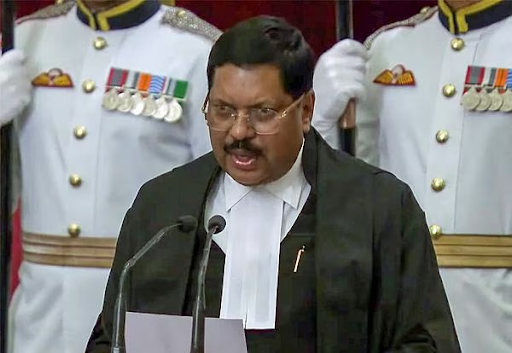Description

Copyright infringement not intended
Context: The Kudmi Community is seeking Scheduled Tribe (ST) status and the inclusion of their language in the Eighth Schedule of the Constitution.
Details:
- The Kudmi community asking for Scheduled Tribe (ST) status and the inclusion of their language in the Constitution's Eighth Schedule.
- There were protests by the community in Jharkhand and areas of West Bengal.
- The Kudmis of the Chota Nagpur plateau were Scheduled Tribes under the British but were dropped from the list once India gained independence.
Kudmi community
About
- Kudmis are mainly a peasant community, with their population concentrated in the Chota Nagpur plateau of West Bengal, Jharkhand and Odisha.
- In some areas, they are also known as Mahatos or Kurmis.
- Some Kudmis have moved from the Chota Nagpur plateau region and can be found in Assam and northern West Bengal.
- They are largely farmers and have a strong cultural heritage.
- They speak Kurmali, a language of the Indo-Aryan family.
- During British rule, they were classified as a primitive tribe, along with the Munda, Oraon, Bhumij, Kharia, Santhal, and others.
Excluded from the ST list after Independence
- Kudmis were not included on the Scheduled Tribe list that was created in independent India after 1950. Since then, they have been struggling for their status as a Scheduled Tribe.
- The Kudmis claim that numerous papers from the British era recognised them as a tribe and an indigenous people of India, therefore they want their identity to be restored.
- Community members claim that some wealthy Kudmis sought to improve their social status as "Kshatriya" in the Hindu caste system during the British era, but others rejected this "Sanskritization."
- Historians claim that during the British era, certain Kudmis attempted to adopt the "Kshatriya" status. Many other Adivasi communities had also done this, not just the Kudmis.
- The majority of Kudmis continue to live according to their traditional faith and culture.
- A group of Kudmis claims that they were left off the ST list to demonstrate an increase in the size of the Hindu community.

What are their demands?
- They mainly have 3 demands:
- To include Kudmis in the ST list
- Include their language, Kurmali, in the Eighth Schedule of the Constitution.
- Recognise Sarna as their religion.
- They have been demanding ST status and the inclusion of their language in the Eighth Schedule of the Constitution for a long time.
- They claim that they are the original inhabitants of the Chota Nagpur plateau and have been discriminated against by other communities.
- They also argue that they were recognised as a tribal community by the British government, but were excluded from the ST list after independence.
Kudmi Movement
About
- The Kudmi struggle for ST status can be traced back to the 1950s, when certain community leaders began organising and advocating for their rights.
- They created organisations and petitioned various authorities to include them on the ST list. They also wanted recognition for their language and culture.
- Their movement gained momentum in the 1980s and 1990s, when the community organised various protests and rallies in West Bengal, Jharkhand, and Odisha.
Response of Government and Others
- Their requests were ignored by various governments, both at the national and state levels.
- They faced opposition from other tribal groups, who believed that their share of reservations and benefits would be reduced if the Kudmis were accorded ST status.
- They also encountered opposition from some upper caste groups who refused to recognise them as equals.
National Commission for Scheduled Tribes (NCST)
- The National Commission for Scheduled Tribes (NCST) recommended that the Kudmis be included in the ST list in 1994, but no action was taken.
Ranganath Mishra Committee
- A committee led by Justice Ranganath Mishra was established by the Union Government in 2004 to examine the situation of linguistic minorities and their constitutional rights.
- The committee delivered its recommendations in 2010, suggesting that Kurmali, along with 37 other languages, be included in the Constitution's Eighth Schedule.
- The government, however, did not implement the recommendations in the report.

Way Forward
- The Kudmi community is one of many in India demanding recognition and justice for their identity and rights. Their movement represents their historical grievances and aspirations, as well as their current problems and potential.
- Their desire for ST status and language rights is based on their claim to be an indigenous and separate ethnic group with distinct cultures and histories.
- However, this demand presents various difficulties and complexity, such as how to define tribal identity, how to accommodate linguistic diversity, how to balance competing interests of different groups, how to assure equal representation and development for all sections of society, and so on.
- These issues require serious thought and dialogue among all stakeholders, including the government, civic society, academia, the media, and so on.
- There is a need for a more inclusive and responsive governing system capable of effectively addressing the challenges and concerns of many communities.
Must Read Articles:
CRITERIA TO DEFINE STs: https://www.iasgyan.in/daily-current-affairs/criteria-to-define-sts
National Commission for Scheduled Tribes (NCST): https://www.iasgyan.in/daily-current-affairs/national-commission-for-scheduled-tribes-ncst
|
PRACTICE QUESTION
Q. Recently “Ranganath Mishra Committee” was frequently mentioned in the news, the committee is related to;
(A) Police Reform
(B) OBC Reservation
(C) Religious and Linguistic Minorities
(D) Social Reform for Women Empowerment
Answer: C
|

https://indianexpress.com/article/explained/who-are-kudmis-and-why-they-are-protesting-in-bengal-8553035/














